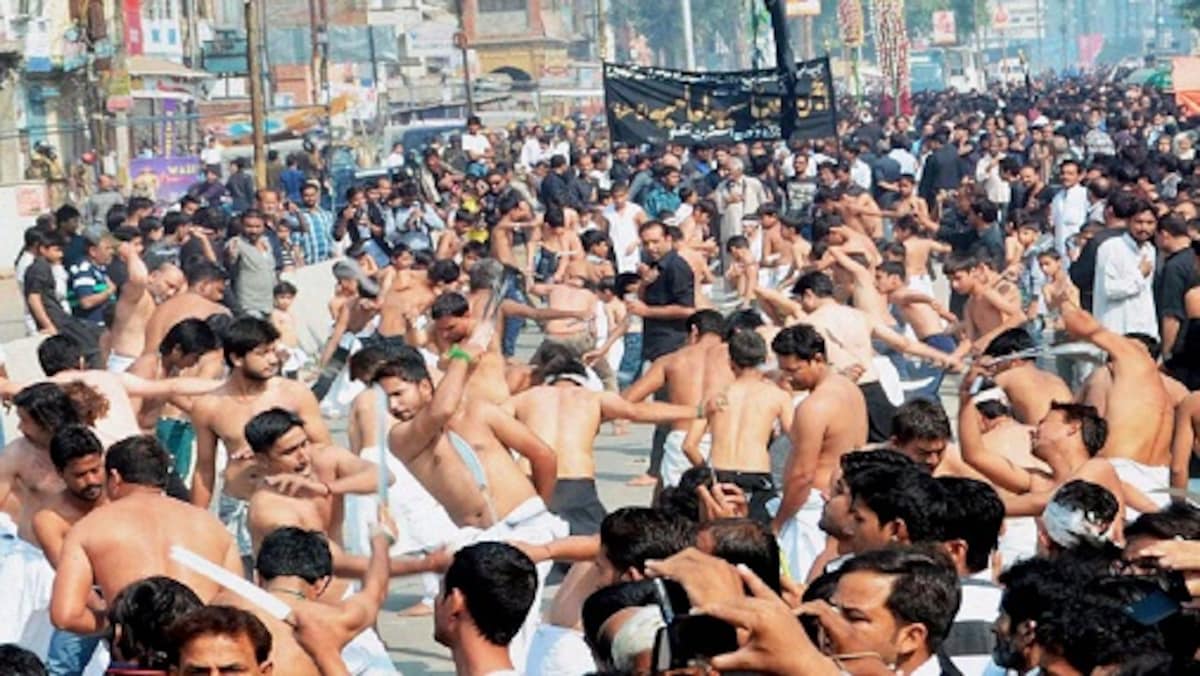This is the month of Muharram, the first month of the Islamic calendar and one of the four sacred months of the year when warfare is forbidden. It is held to be the second holiest month after Ramadan. The tenth day of Muharram is known as Ashura and as part of the Mourning of Muharram, Shi’i Muslims mourn the tragedy of Ḥusayn ibn ʿAlī’s family, and Sunni Muslims practice fasting on Ashura.
Muslims mourn the martyrdom of Ḥusayn and his family, honouring the martyrs by prayer and abstinence from joyous events. Shiʿi Muslims eat as little as possible on the Ashura; however, this is not seen as fasting. Alevis fast twelve days, each day for one of the Twelve Imams of Shiʿa Islam, to commemorate and mourn the Imams, as if a very close relative has died. Some, excluding children, the elderly or the sick, don’t eat or drink until zawal or afternoon as a part of their mourning for Husayn. In addition, there is an important ziyarat or a form of pilgrimage book, the Ziyarat Ashura about Ḥusayn. In Shiʿism, it is popular to read this ziyarat on this date.
The sighting of the new moon ushers in the Islamic New Year. The first month, Muharram, is one of the four sacred months mentioned in the Quran, along with the seventh month of Rajab, and the eleventh and twelfth months of Dhu al-Qi’dah and Dhu al-Hijjah, respectively, immediately preceding Muharram. During these sacred months, warfare is forbidden. Before the advent of Islam, the Quraish and Arabs also forbade warfare during those months. Muslims believe that in this month of Muharram, one should worship Allah a lot.
Muharram is a month of remembrance. Ashura, which means the Tenth in Arabic, refers to the tenth day of Muharram and is well known because of the historical significance and mourning for the Shahadat or martyrdom of Ḥusayn ibn Ali, the grandson of Muhammad. Muslims begin mourning from the first night of Muharram and continue for ten nights, climaxing on the 10th day of Muharram, known as the Day of Ashura which is considered the most important by both Shia and Sunni Muslims. Tomorrow, the 10th day of Muharram or the Day of Ashura will be commemorated. Shia Muslims observe it as a day of mourning to commemorate the death of the grandson of Prophet Muhammad, Hussayn Ibn Ali. The last few days up until and including the Day of Ashura are the most important because these were the days in which Hussain and his family and followers, including women, children and elderly people were deprived of water from the 7th day onward and on the 10th day, Husayn and 72 of his followers were killed by the army of Yazid I at the Battle of Karbala on Yazid’s orders. The surviving members of Husayn’s family and those of his followers were taken captive, marched to Damascus, and imprisoned there. This was because, according to legend, Imam Hussayn objected to the legitimacy of the Caliph Yazid and revolted against him leading to the battle of Karbala in 680 AD. Sunni Muslims believe that the religious leader Moses led Israel through the Red Sea and got victory over the Egyptian Pharaoh and his army of war chariots on the 10th day of Muharram. There is another belief that Adam and Eve were created by God on the 10th day of this month. It was also during this time that Prophet Muhammad migrated from Mecca to Medina, which is known as Hijrah, and so Muharram marks this important event as well.
In India, though both Shias and Sunnis observe Muharram, for the Shias, it is a day of observance and not joy, and thus, they are in mourning for the 10 days. They dress in black, attend special prayer meetings at mosques and even refrain from listening to music or attending events like weddings. On the 10th day, street processions take place in which they walk barefoot, chanting and whipping their chests until it draws blood to commemorate the sufferings of Imam Hussayn. Sunnis observe this day with fasting from the first to the 10th or 11th day of the month. This is voluntary, and the ones who fast are believed to be rewarded by Allah.



